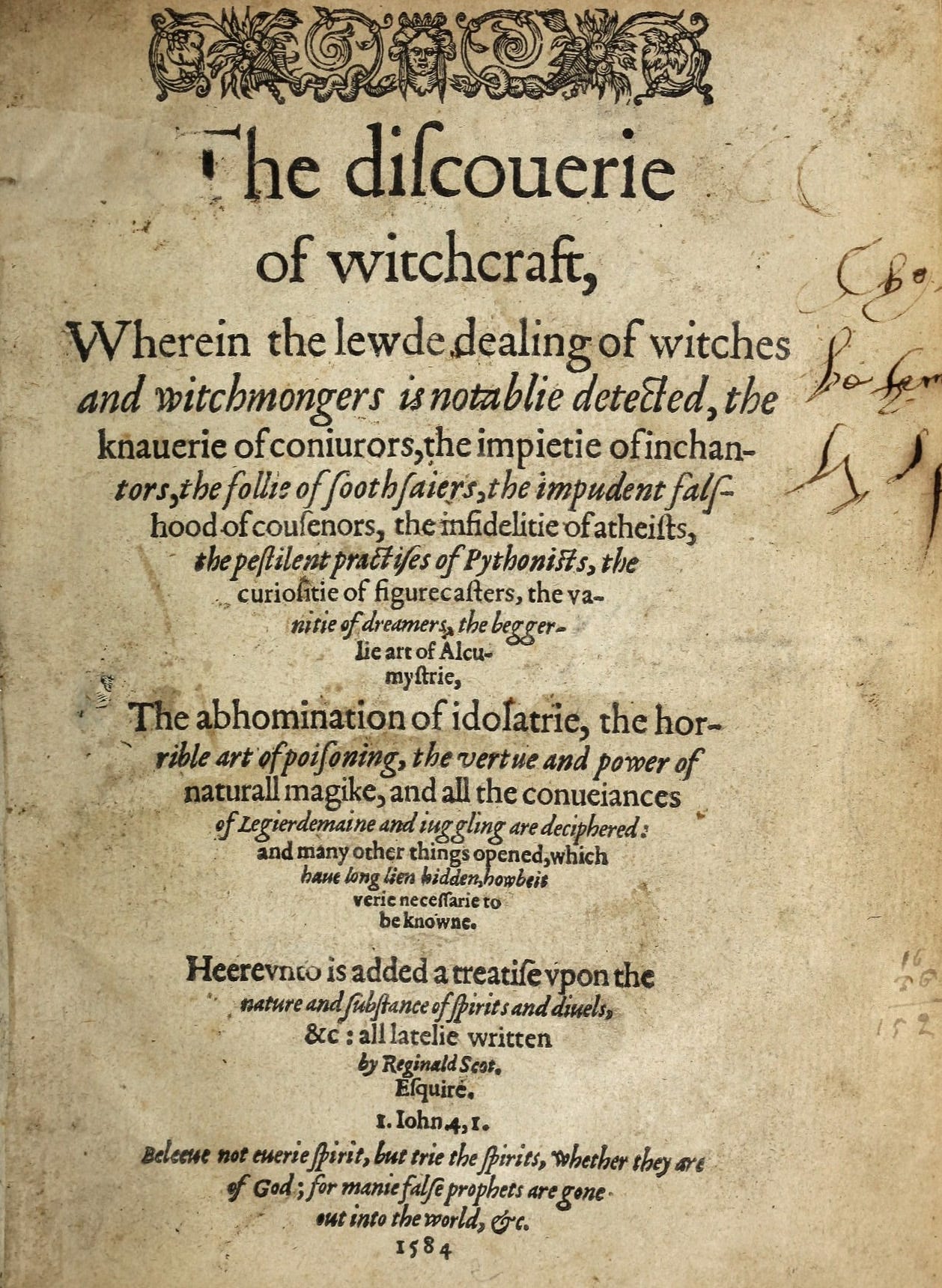Magicians vs Witches. What’s the Difference?
What I discovered when I did a PhD on early modern depictions of magic
Pseudomonarchia Daemonum or ‘the Pseudo-monarchy of demons’ is what’s called a ‘grimoire,’ a book of magical instruction.
Its purpose is to list and describe a whole bunch of demons which a magician might want to conjure, with handy information about their rank in hell (demon dukes, demon princes and so on) as well as their personalities and exactly how grumpy they’ll be when you make them run your interdimensional errands.
Crucially, it also reassures the magician that he (and I use ‘he’ quite deliberately) is Definitely Not a Witch. The scholars-turned-conjurors are in an entirely different class and their souls are surely not at risk of damnation. It explains:
“These are no small fooles, they go not to work with a baggage tode, or a cat, as witches doe; but with a kind of majesty, and with authority they call up by name, and have at their commandement seventy and nine principall and princely divels…”
I’m still not entirely sure what a ‘baggage toad’ is but it sounds like a nightmare to get through customs. No wonder witches have to fly by broom.
You can hear that words like ‘majesty’ and ‘authority’ are stepping in here to create a hierarchy of magical practitioners. Magicians who study, who conquer and command are placed far above the common people practising folk magic. They are like our idea of scientists, trained to handle dangerous substances and free from the moral weakness that could cause accident or addiction—
However
The above quote is taken from a section of this grimoire which had not been printed on its own for magicians, but had been translated as part of a sceptical treatise aimed at pouring scorn on those who believed in such magical authority.
Reginald Scot’s wonderful The Discovery of Witchcraft is one of my favourite books ever written. Scot has the tone of an exasperated Richard Dawkins explaining in painstaking detail why it isn’t actually possible to conjure ghosts and devils and why it’s probably best not to execute old ladies for having pets.
He translates the grimoire to expose it to ridicule, saying:
“He that can be perswaded that these things are true […] may soone be brought to beleeve that the moone is made of green cheese.”
For Scot, scholar-magicians are just as deluded as ordinary people accused of ‘witchcraft,’ and the worst that any of them were really guilty of of was gullibility for having wasted their time and resources.
But this is the sixteenth century and Scot’s scepticism is by no means typical. In fact, a few years later in 1597, James VI of Scotland (who would soon become James I of England) published his own treatise on magic, Daemonologie, in which he criticised Scot for his ‘damnable opinions.’
James sincerely believed that witches had attempted to assassinate him by conjuring a storm at sea. He had consequently involved himself in a series of Scottish witch trials that had led to numerous executions (he’s the one standing over the accused women next to the judge in the picture below), and he was appalled at Scot’s dismissiveness.
He addressed the idea that magicians had more insight and control than witches yet crucially, James suggested that the devil merely allowed his servants to seem subdued when conjured by a learned man, that the very distinction drawn in grimoires like Psuedomonarchia Daemonum was the means by which arrogant scholars were deluded into the same soul-damning practices as the commoners killed for witchcraft.
If you’re thinking ‘that sounds like the plot of Doctor Faustus’ then you’re absolutely right. Christopher Marlowe’s version of the fabled damnation of a scholar-turned-conjuror had been a recent hit on the English stage and likewise undermined the notion, promised in the grimoires, that exceptional men could sidestep the dangers of magic.
So what’s the difference between the magician and the witch? It depends who you ask. The sceptic might tell you that it’s all so much green cheese. The nervous witchfinder might tell you that they’re both as evil and as dangerous as each other.
And the demon might well tell you not to worry, my lord, you are no servile witch for you are in command of me, and I am bound by your authority, your intellect, your masculinity, to do exactly what you say and leave your soul intact…
…But then again, a devil would say that, wouldn’t they?
Subscribe for more insights from my PhD on the history of belief in magic and its depiction in drama and elsewhere. I publish my ‘horror moments’ on Thursday mornings, and bonus content like this on Monday afternoons.








Very cool. Baggage tode means a bag towed or dragged behind or a large bag over the shoulder. This is most likely a reference to the fact that herbalist women and women who simply had to forage for themselves often carried such sacks, as did peasant men for that matter. Magicians were of a higher class, supposedly, and wouldn’t be seen in such a menial pose.
I wondered if a baggage toad was a toad that was a bit of an opinionated strumpet. If so, baggage toads are welcome in my house.